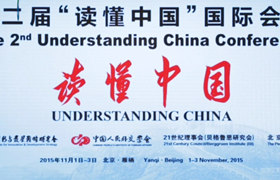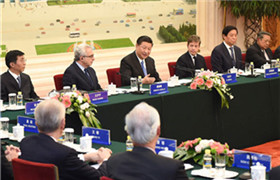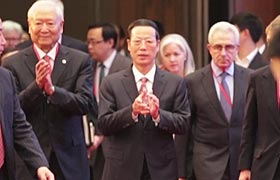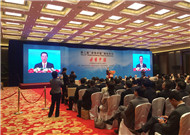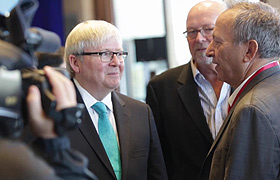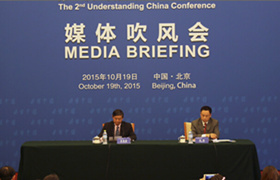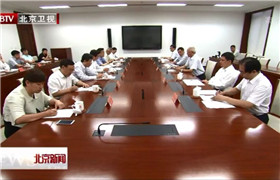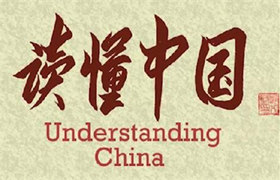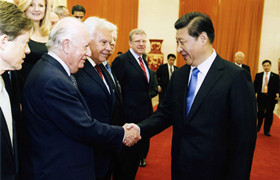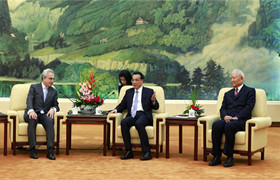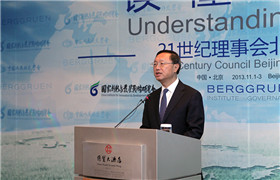- HOME--> Understanding China International Conference
-
Wu Jianmin: The world must understand China in the 21st century
Source:huanqiu.com
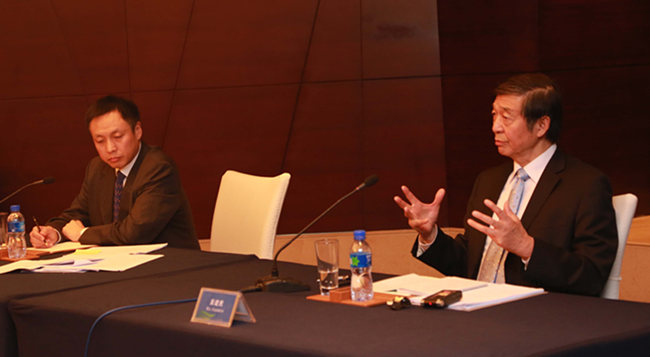
(This article is a transcript of Mr. Wu Jianmin’s speech at the media briefing of the 21st Century Council Beijing Conference on October 28, with the title given by the editor. The article is now exclusively authorized by Mr. Wu and published on huanqiu.com)
The 21st Century Council will be held in Beijing on November 1-3 this year. The Council is a world-renowned high-level think tank, initiated by some former government heads and participated by many well-known scholars, Nobel laureates and entrepreneurs. Usually held prior to the summit of the Group of 20 (G20), the Council is also called "the shadow G20." Yet this session is very special.
First, the theme “Understanding China” is unique. Why did they choose this topic? I suppose there are two reasons. One is that the world needs to understand China. The world is undergoing tremendous changes, and China is an important driving force. However, in the process, a lot of people have misunderstood China. The other is that China also needs to introduce and illustrate itself to the world. China is also undergoing profound changes. Since the outbreak of the Opium War, our statehood has never been so high, and our weight in the world has probably never been so massive. Our development is inseparable from the world, and too much misunderstanding of China will probably hinder our progress. Therefore, from the Chinese side, we also need to explain to the world about what China is really like. It is the need of both sides. The theme proposed by our foreign friends has taken into account this mutual demand.
Secondly, the previous sessions, include one in Paris in October 2011 and another in Mexico in May 2012, were held before the G20 summit. But this Beijing Conference is an exception, for this year's G20 summit was held in St. Petersburg in September. This 21st Century Council conference is devoted to the issues of China. What does this mean? It means that the world pays attention to the country, and that China needs to explain itself to the world.
As far as the Chinese side is concerned, why did it choose such a point of time? We know that after the Eighteenth CPC National Congress, China's new leadership group began to bring the Chinese reform and opening up to a new starting point. Then, where will China go in the future? The Chinese people as well as the outside world are eager to know the answer. Moreover, as the Chinese people are looking forward to the forthcoming Third Plenary Session of 18th CPC Central Committee, I have just returned from abroad only to find the world similarly enthusiastic. Hence, we feel that it is the right timing.
For me, I have always been present at this conference. Nicolas Berggruen, co-founder of the 21st Century Council, is a famous figure in the U.S.. Once he came to China for the sole purpose of seeing Mr. Zheng Bijian, inviting him to be a founding member of the Council. Mr. Zheng accepted his invitation.
Mr. Zheng is the first in China to put forward the philosophy of "a peaceful rise," which has been accepted by the central government as China's peaceful development strategy. In exchanges with foreigners, Mr. Zheng reiterated his view at several meeting sessions, describing China’s next action as constructing a community of interest based on the expanding convergence of interests. They were very interested in Mr. Zheng’s description and thought that "a peaceful rise" was about China itself, while this expression is about China's relations with the world, namely seeking more common interests of all parties. Each party has its own interests, and cooperation on the basis of the point of convergence of interests can expand common interests. Mr. Zheng also said it was necessary to establish a community of interests covering different areas in different types and at different levels. In this way, we will consolidate the foundation for Sino-foreign relations, further mutual interdependence, and extend common interests. While there will always be disparities between countries, given a more solid foundation, we will be more sober-minded, think more about others and take more appropriate measures when dealing with differences.
It should be noted that in his conversation with foreign delegates, Mr. Zheng reiterated that the philosophy of constructing a community of interest based on the expanding convergence of interests was no longer his personal opinion. Instead, it became the policy of the Chinese government, expressed in the 12th Five-year Plan launched in May 2011 and the White Paper on China's Peaceful Development released on September 6, 2011.
According to the Council, the above thoughts are outstanding and timely, which should become the guiding principles of the Council.
Mr. Zheng expounded his view on many international occasions, including several long talks with Henry Kissinger, Zbigniew Brzezinski and other scholars, and I was also present. They got very interested in his idea. Dr. Kissinger said: "I devoted all my life to 'the balance of power', but it seems obsolete, and your idea is really better." Brzezinski said that, looking back at the past century, had this been the thought of leaders before the outbreak of World Wars I and II, the world history would have been rewritten. This view of the Chinese people has been extensively recognized around the globe.
The 21st century sees the world at a turning point. Where will it go? All people are trying to find a path towards common prosperity. In my opinion, the only way for mankind to accomplish long-lasting peace and common prosperity is constructing a community of interest based on the expanding convergence of interests, which is the call of the epic theme of peace and development. As is pointed out by President Xi, "In this world, peace, development and win-win cooperation have become the trend of the times." The Chinese people’s adherence to peaceful development is an evidence that they conform to this trend.
(Quoted from huanqiu.com, October 29, 2013)
-
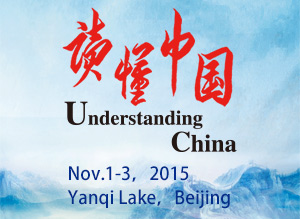
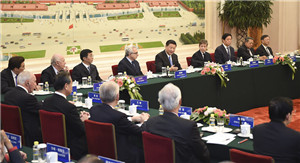
The 2nd "Understanding China" ConferenceOn November 1~3, 2015, the 2nd “Understanding China” Conference was held in Beijing Yanqi Lake International Conference Center. Zhang Gaoli, Vice Premier of the State Council, attended the opening ceremony.
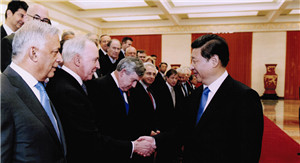
The 1st "Understanding China" ConferenceOn November 1~3, 2013, the 1st “Understanding China” Conference was held in Beijing, which was cosponsored by China Institute for Innovation & Development Strategy (CIIDS), Chinese People’s Institute of Foreign Affairs (CPIFA), and Berggruen Institute on Governance.
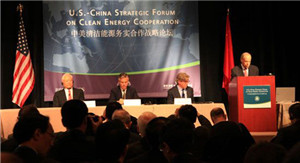
The 2nd U.S.-China Strategic Forum on Clean Energy CooperationWith the “Prospects for U.S.-China strategic cooperation in next decade” as its theme, the forum dwells on the implications of U.S.-China cooperation from the strategic perspective of coping with global challenges and maintaining world peace.
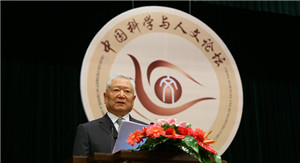
The China Sciences and Humanities ForumCo-initiated in April 2003 by renowned Chinese scientist Mr. Lu Yongxiang and influential political strategist Zhen Bijian, China Sciences and Humanities Forum was jointly hosted by Graduate University of Chinese Academy of Sciences (GUCAS) and the Higher Education Press.

